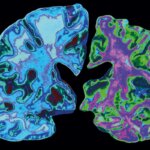As reported in the journal Clinical Child and Family Psychology Review, researchers at the University of Derby discovered that children’s mental health is potentially at risk.
The systems of measuring their emotions and feelings are inadequate, the new findings suggest.
Researchers at the University of Derby examined numerous methods of measuring self-referential emotions in children, identifying the most effective ones that instructors and other professionals utilize when needed.
Out of the nearly 100 uncovered in the study, only eight were deemed as appropriate for use.
“Of those eight, the research has recommended two in particular—the Child Adolescent Perfectionism Scale (CAPS) and the Children’s Automatic Thoughts Scale (CATS) – but no measure was found to deliver all the elements required for completely effective measurement of self-referential emotions,” the authors of the study wrote in a news release.
“What we found is that there were a number of non-clinical measurement tools available, but it was important to understand how rigorous and reliable each measure was, to help professionals make an informed choice about the methods they use.”
“Overall, our review revealed that there is a paucity of measures suitable for assessing negative self-referential emotions in children and adolescents, and those that do exist require further development,” the authors concluded.


